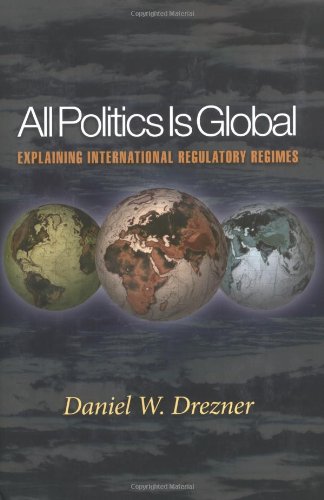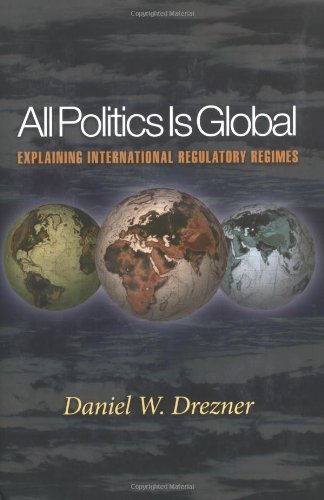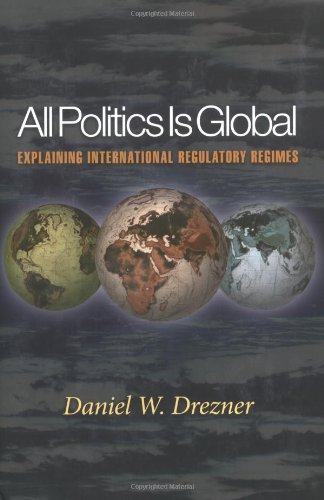All Politics is Global – Explaining International Regulatory Regimes
All Politics is Global – Explaining International Regulatory Regimes is backordered and will ship as soon as it is back in stock.
Couldn't load pickup availability
Genuine Products Guarantee
Genuine Products Guarantee
We guarantee 100% genuine products, and if proven otherwise, we will compensate you with 10 times the product's cost.
Delivery and Shipping
Delivery and Shipping
Products are generally ready for dispatch within 1 day and typically reach you in 3 to 5 days.
Book Details
-
Publisher: Princeton University Press
-
Author: Daniel Drezner
-
Language: English
-
ISBN: 9780691096414
-
Pages: 254
-
Cover: Hardcover
-
Release Date: 25-02-2007
-
Dimensions: 9.3 x 6.2 x 0.9 inches
About The Book
All Politics Is Global by Daniel Drezner challenges the prevailing view that globalization has eroded the power of national governments to control and regulate their economies. In this thought-provoking work, Drezner argues that, despite the global interconnectedness of economies, states—particularly the great powers—remain dominant players in the creation and enforcement of international regulations.
The book explores how globalization has not diminished the ability of states to shape global regulatory frameworks. On the contrary, Drezner demonstrates that state size—specifically the size of a state’s domestic market—remains a significant determinant of its power in the international arena. The United States and the European Union, due to their vast internal markets, continue to hold substantial sway over global regulatory regimes.
Drezner’s analysis reveals that effective global governance hinges on the agreement of these great powers. If they align, international regulations tend to be effective and robust; if they disagree, governance becomes fragmented and ineffective. Interestingly, Drezner also points out that the most influential regulatory preferences of great powers often stem from the least globalized sectors of their economies.
The book tests this “revisionist” model of global regulatory governance across a broad range of cases, including the regulation of the internet, finance, genetically modified organisms, and intellectual property rights. Through these diverse examples, Drezner offers a compelling argument for why global governance can sometimes be stronger and more cohesive than often assumed.
This book is a critical read for anyone interested in international relations, globalization, and the balance of power in the 21st century.





